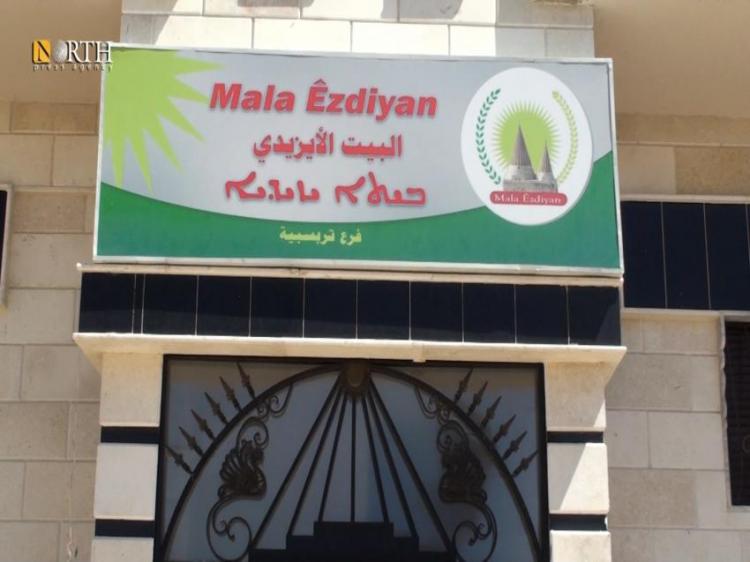TIRBESPI, Syria (North Press) – Tirbespi city, 30 km east of Qamishli, houses Yezidis who fled Islamic State (ISIS) massacres in 2014 in the Shengal (Sinjar) region, in the Kurdistan Region of Iraq near Syrian border.
During the ISIS attacks on Shengal, which began on August 3, 2014, the Kurdish-led People’s Protection Units (YPG) were able to open a safe path for refugees fleeing across a rugged mountainous area to safety in Syria's Autonomous Administration regions.
The Kurdish-speaking Yezidi minority has been subjected to over 70 massacres throughout their history due to their unique religious beliefs, which their persecutors have labelled as devil worship. The 2014 massacres resulted in huge numbers of dead and kidnapped Yezidis, in addition to the destruction of over 70 of their cultural and religious sites.
According to a member of Yezidi House, Mahmud Rasho, ISIS kidnapped almost six thousand Yezidis, including men, women, and children. Yezidis who were killed were buried in more than 80 mass graves.
Ziad Rustem, a resident of Tirbespi and a member of Yezidi House, said that he could not express the horror of those moments, and that they were among the groups mobilized to assist the displaced. "All the ethnic and religious communities in our region hurried to support the Yezidis and show sympathy for their tragedy," he stated.
He added that they helped hundreds of families and secured their arrival to Semalka crossing to pass to the Kurdistan Region of Iraq, while they sent other families to Newroz camp in Derik countryside, in addition to providing housing to more than 125 families, including more than one thousand people, in Yezidi villages in the Tirbespi countryside.
He adds that he has not forgotten the efforts of the residents who helped the official institutions in securing the displaced's needs. Many local farmers provided the refugees with fruit and vegetables daily, in addition to social activities, and Yezidi charities in European countries provided financial assistance to them as well.
Yezidi House, which was established in 2012, connected the bereaved and lost Yezidis at home and their relatives abroad, aiming to bring them to safety.
The Yezidi House worked to return kidnapped women and missing Yezidis to their families, especially after the Kurdish-led People's Protection Units (YPG) and Women's Protection Units (YPJ) and later the Syrian Democratic Forces (SDF), defeated ISIS militarily at their last Syrian stronghold of Baghouz in 2019.
Tirbespi's children, who were witnesses to the displacement, remember events of that time. Arin, a Yezidi child from the town, talks about sharing her clothes and toys with the hungry, thirsty, and sick refugees.
In the northern neighborhood of the town, Shani Suleiman recounts what she heard from those fleeing Shengal. She an her husband and children provided aid to them after their exodus.
She still remembers "the cracked feet of the Yezidi women and the wounds caused by the stones and thorns on their way to Syria. Some were elderly women, and we could not do anything at that moment but cry for their condition,” she said.
She recounts a story of an elderly Yezidi woman whose four daughters were kidnapped by ISIS. "She told me that her older daughter was a doctor, one was a pharmacist, and two were teachers. ISIS abducted them and she does not know what happened to them."
Shani's husband distributed food to the displaced who settled in the surrounding villages for nearly seven months. "I cried for days for this mother; I will not forget what happened to her daughters as long as I live," she recalled solemnly.
(Reporting by Abdulhalim Suleiman)

